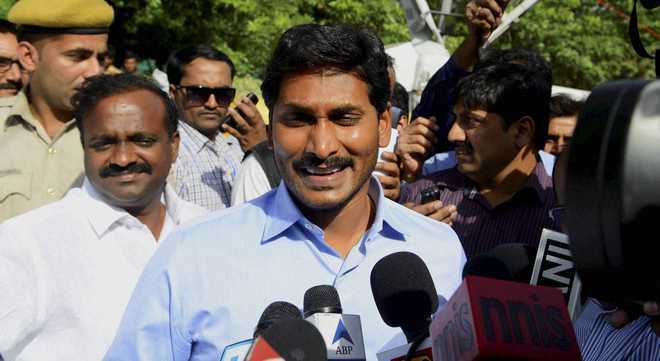He vowed to bring such a law during his padyatra as an Opposition leader, and now that he is the Andhra Pradesh Chief Minister, YS Jagan Mohan Reddy’s government is set to make it mandatory for existing and upcoming industries in the state to ensure 75 per cent jobs for local candidates within three years. In case no suitable candidates are available, the employers will have to train and engage locals within three years in collaboration with government agencies. The Employment of Local Candidates in the Industries/Factories Bill, 2019, was passed by the Assembly within a day, and now awaits assent. One hopes it is not given. Political jingoism is one thing, but going full-steam ahead with an idea that is conceptually flawed is inviting trouble.
The first-time CM cannot be faulted for his intent — ensuring jobs for the large unemployed workforce, particularly in the rural belt, and living up to his promise. Reservation and imposing such constricting restrictions in an already circumspect industrial climate, however, can only impede growth, not generate jobs. For any investor, an enabling environment is a pre-requisite. It is an embarrassing truth for generous state governments that big-ticket projects which are projected as life-altering for locals, whose land is often acquired, only end up providing numbered low-income jobs. The industry has a reasonable explanation — lack of skills. The Andhra Government’s grand project stems from this experience, but fixing a quota is disruptive. ‘Domicile’ already ensures preference for locals in special-skill institutions. Businesses must have corporate social responsibility, but social responsibility cannot be the primary business.
With no help in sight, similar myopic demands to reserve jobs for local candidates have come up in Karnataka, Madhya Pradesh, Maharashtra and Gujarat. The erroneous economics apart, the divisive concept encourages inter-state, inter-community, inter-racial tensions, discourages merit, and challenges the ‘one nation’ constitutional right. Jobs are at the centre of the debate, state governments have little to offer on their own, so nudge private players, form pragmatic partnerships. Don’t bring the system down.
Unlock Exclusive Insights with The Tribune Premium
Take your experience further with Premium access.
Thought-provoking Opinions, Expert Analysis, In-depth Insights and other Member Only Benefits
Already a Member? Sign In Now










